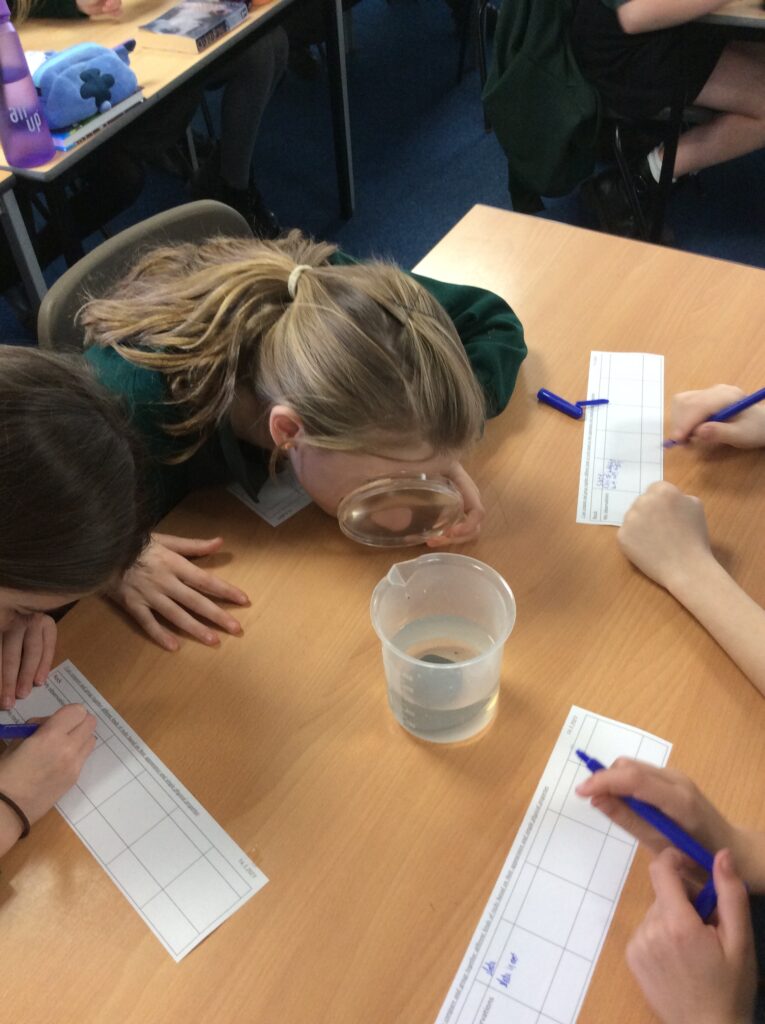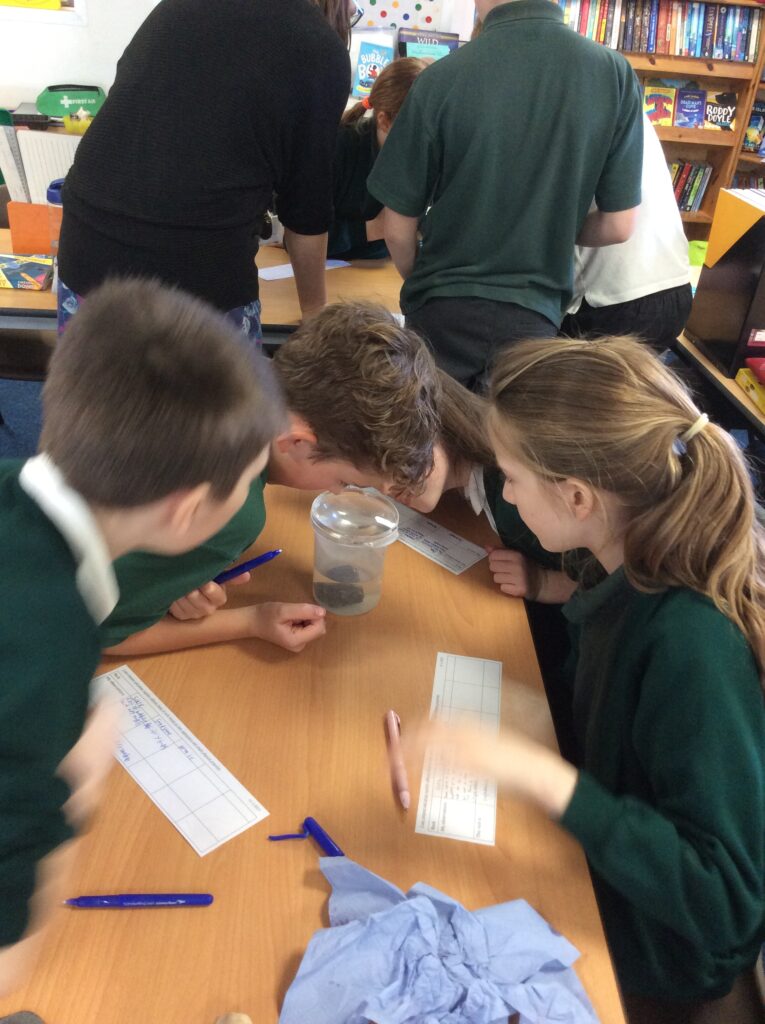
Our Science links to our school vision:
Together
Our curriculum aims to:
Learn
Our carefully sequenced curriculum aims to:

Grow
Our holistic, child-centred curriculum aims to:
Flourish
Our exciting and memorable curriculum aims to:
Intent (Learn).
We believe science should be a lively and engaging subject that provides fun experiences while developing secure knowledge and skills in line with the National Curriculum and beyond.
We want children to leave our school fully prepared for more specialised learning at secondary schools, but also to have a good level of understanding of the world around them.
We also want our pupils to show strong values, in line with those of the school and of British society. For example, we strongly believe in taking care of the environment and, through science teaching, encourage children to do the same.
We also want learners to see the opportunities present in science for people of all backgrounds.
Implementation (Grow).
We have a clear and comprehensive plan in line with the National Curriculum;
Children progress from year group to year group, often revisiting and building on prior knowledge in a spiral fashion. We follow the Plymouth Science Scheme whose curriculum matches the National Curriculum.
At all ages, science at Christ Church is a predominantly practical subject, with children developing skills and knowledge through first-hand experience of experiments and practical activities.
Children will access resources to acquire learning through science equipment, digital technology, practical experiences photographs, online learning etc. Children will use a range of resources to develop their knowledge and understanding that is integral to their learning.
Cross-curricular links are also often a part of science, with children bringing in skills such as digital literacy, making graphs or building with a range of materials. Elements of science likewise come in to other subjects, such as children learning about famous scientists over the course of a unit on biographies in English.
Being good global citizens and demonstrating strong values is also a key part of Christ Church science. Through the subject, children learn about a range of issues affecting people and the planet as a whole, such as recycling. We have frequent visitors, trips and extra-curricular activities such as clubs to support this value, as well as an eco-council in school.
Impact (Flourish).
Our science plan ensures that children achieve a good understanding of the National Curriculum through spiral learning, with learning being built on and added to each year. Our scheme of work is reviewed by the staff and the subject leader each year to ensure it is working. Beyond the usual assessment of questioning and marking, a ‘pre and post learning’ system is also used to make sure children are being challenged appropriately and to catch any gaps in understanding.
Pupils speak highly of science across the school. They enjoy the range of visitors and trips we provide in support of the subject, as well as the practical nature of teaching.
By year 6 our pupils are also very conscious of the environment and demonstrate strong values. Eco clubs are always well attended and the children have achieved genuine success in fundraising and implementing change to practices in the school to make it more environmentally friendly.
Science documents